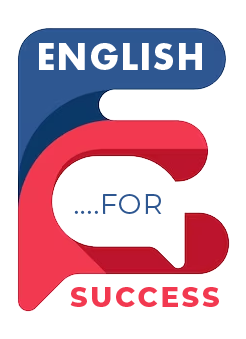Effective Revision Strategies for Junior and Leaving Cert Exams
The Junior and Leaving Certificate examinations represent significant milestones in Irish secondary education. For many students, these exams can feel overwhelming, but with the right revision strategies, you can approach them with confidence and achieve your potential. This blog post outlines practical, evidence-based approaches to help you prepare effectively for these important assessments.
Understand the Exam Structure
Before diving into revision, it’s crucial to understand exactly what you’re preparing for:
Junior Cycle:
• Replaced the Junior Certificate in 2014
• Focuses on skills development alongside subject knowledge
• Includes Classroom-Based Assessments (CBAs) throughout 2nd and 3rd year
• Final assessment through state-certified examinations
Leaving Certificate:
• Typically covers material from both 5th and 6th year
• Different subjects have different assessment components (written exams, oral exams, practicals, project work)
• Marked on a points system crucial for third-level education entry
Create a Realistic Study Plan
The foundation of effective revision is a well-structured study plan:
1. Audit your subjects: Identify your strengths and weaknesses across all subjects.
2. Allocate time accordingly: Dedicate more time to challenging subjects while maintaining revision in stronger areas.
3. Use a calendar: Map out the weeks leading to exams, marking examination dates and setting revision milestones.
4. Set daily and weekly goals: Break down subjects into manageable topics rather than overwhelming subject-wide revision.
5. Schedule breaks: Include regular short breaks (5-10 minutes each hour) and longer breaks between subjects.
Effective Revision Techniques
Not all revision methods are created equal. Research suggests these approaches yield the best results:
Active Recall
Rather than passive re-reading, actively test yourself on the material:
• Use flashcards to test key concepts, formulas, and vocabulary
• Cover your notes and try to recall the information from memory
• Create practice questions based on past papers
• Explain concepts aloud as if teaching someone else
Spaced Repetition
Instead of cramming, space out your revision of each topic:
• Review material multiple times with increasing intervals between each review
• Start revision early to allow for multiple revisits to difficult topics
• Use digital tools like Anki or Quizlet that incorporate spaced repetition algorithms
Past Papers and Exam Practice
Familiarizing yourself with the exam format is crucial:
• Complete timed practice under exam conditions
• Focus on understanding marking schemes
• Review examiner reports to understand common pitfalls
• For Junior Cycle, practice the new-style assessment questions which may differ from traditional formats
Mind Mapping and Visual Aids
Visual organization can help consolidate understanding:
• Create mind maps connecting related concepts
• Use color-coding to highlight different themes or topic areas
• Create timelines for historical events or literature
• Draw diagrams for scientific processes or mathematical relationships
Subject-Specific Strategies
Languages (Irish, English, French, etc.)
• Practice writing regularly using past paper questions
• Create vocabulary lists organized by themes
• Record yourself speaking to improve oral components
• Read widely in the target language (newspapers, short stories)
Mathematics and Sciences
• Focus on problem-solving rather than memorization
• Practice showing all your working methodically
• Create formula sheets for quick reference
• Link theoretical concepts to practical applications
Humanities (History, Geography, Business)
• Create structured essay plans for common topics
• Memorize key dates, figures, and case studies
• Practice timed essays to improve writing speed
• Use mapping techniques for visual representation of information
Maintaining Well-being During Exam Period
Effective revision isn’t just about study techniques—it’s also about maintaining your physical and mental health:
• Sleep properly: Aim for 8 hours of sleep each night, especially before exams
• Eat well: Choose brain-boosting foods rich in omega-3s, antioxidants, and complex carbohydrates
• Exercise regularly: Even short walks can improve concentration and reduce stress
• Practice mindfulness: Try relaxation techniques like deep breathing when feeling overwhelmed
• Set boundaries on social media: Consider using apps that limit screen time during study periods
Leveraging Technology for Revision
Used wisely, technology can enhance your revision experience:
• Educational apps: Use subject-specific applications for interactive learning
• Online practice tests: Many educational websites offer free practice materials
• Video tutorials: Visual explanations can help clarify difficult concepts
• Digital flashcards: Create and review flashcards on your phone for revision on the go
• Study groups: Virtual study groups can provide accountability and support
The Week Before Exams
As exams approach, adjust your strategy:
• Focus on reviewing rather than learning new material
• Condense your notes into one-page summaries for last-minute review
• Practice timed questions under exam conditions
• Prepare all materials (pens, calculators, ID) in advance
• Plan your journey to the exam center
• Review the exam timetable carefully
Final Thoughts
Remember that revision is a personal process—what works for your friends might not work for you. Experiment with different techniques early in your revision period to determine the most effective approach for your learning style.
The key to success in both the Junior and Leaving Certificate examinations lies not in last-minute cramming but in consistent, structured revision over time. By implementing these strategies, you’ll approach your exams with greater confidence and maximize your potential for success.
Best of luck with your examinations!
Looking for additional revision support? Consider joining us at English for Success. You can contact us at admin@englishforsuccess.ie

